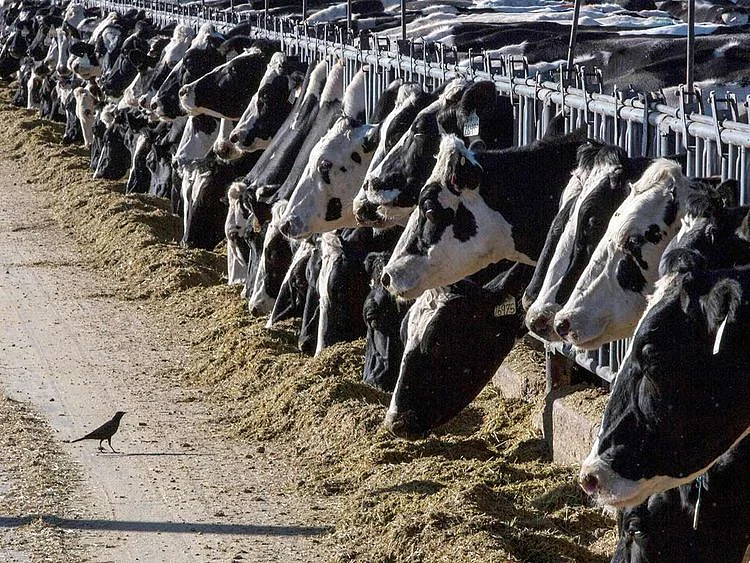ADAFSA urges livestock owners to safeguard their animals during summer
Summer heat puts UAE livestock at risk, ADAFSA warns

Abu Dhabi: The Abu Dhabi Agriculture and Food Safety Authority (ADAFSA) has urged livestock owners to take extra care of their herds during the summer months, follow proper animal welfare practices, and implement measures to protect livestock from heat stress — a condition that can lead to reduced productivity and slower growth rates.
The Authority warned that severe heat stress, caused by high temperatures and humidity, can lead to fatalities among livestock and sheep. It stressed the importance of shading animal enclosures by any suitable means to protect them from direct sunlight, which can negatively impact productivity or cause death. In cases of extreme heat combined with high humidity, ADAFSA advised spraying barns and animals with water — particularly at midday — to help reduce heat intensity, while ensuring animals remain in shaded areas at all times. It also cautioned against allowing animals to drink hot water, which can cause health problems.
Water supply and shaded storage
ADAFSA emphasised the need to provide a constant supply of water in drinking troughs and to place them in shaded areas to prevent evaporation and overheating. It also recommended shading water tanks in livestock enclosures to maintain moderate water temperatures for as long as possible. In addition, the Authority advised regularly adding vitamins — especially Vitamin C, and Vitamins A, D, and E — to drinking water.
It also highlighted the importance of safe animal transportation, advising against moving animals during midday when temperatures peak. ADAFSA urged livestock owners in Abu Dhabi to comply with biosecurity requirements to ensure the sustainable development of the livestock sector, safeguard public health, and prevent zoonotic diseases.
Promoting best practices
This initiative forms part of ADAFSA’s ongoing efforts to raise awareness among breeders through guidance tools and outreach programmes focused on the scientific and practical principles of livestock management. The goal is to promote best practices that boost productivity and increase breeders’ financial returns.
ADAFSA livestock specialists maintain regular communication with breeders, offering advice on improving herd performance, achieving greater self-sufficiency in local animal products, and narrowing the gap between local production and imports.
Specialised inspectors
The Authority advised livestock owners to regularly inspect animal feed during summer to ensure it is free from moisture, mould, and pests. It also recommended shearing wool and hair — particularly before summer — to help reduce heat stress, prevent external parasites, and limit their spread.
ADAFSA’s awareness programmes aim to promote good livestock management practices that increase production and improve profitability. Through continuous engagement, its specialists guide breeders on improving herd performance, thereby contributing to local food security.
Preventing hunger and thirst
The Authority urged breeders to monitor water tanks and drinking troughs regularly, ensuring they are clean, shaded, and out of direct sunlight. It again warned against allowing animals to drink hot water, which may cause digestive disorders.
ADAFSA reiterated the importance of shading animal housing to protect livestock from direct sunlight and advised spraying barns and animals with water during periods of extreme heat and humidity. It also warned against subjecting animals to hunger, thirst, or malnutrition, and suggested reducing the provision of high-energy feeds — such as yellow corn — during summer, as their high fat and oil content requires more effort to digest, increasing heat stress.
Instead, daily feed rations should be maintained but divided into several smaller meals to account for reduced appetite during extreme heat. Continuous supplementation of drinking water with vitamins — especially Vitamin C, and Vitamins A, D, and E — was also recommended to help ease the physical strain on animals.
Sign up for the Daily Briefing
Get the latest news and updates straight to your inbox
Network Links
GN StoreDownload our app
© Al Nisr Publishing LLC 2025. All rights reserved.